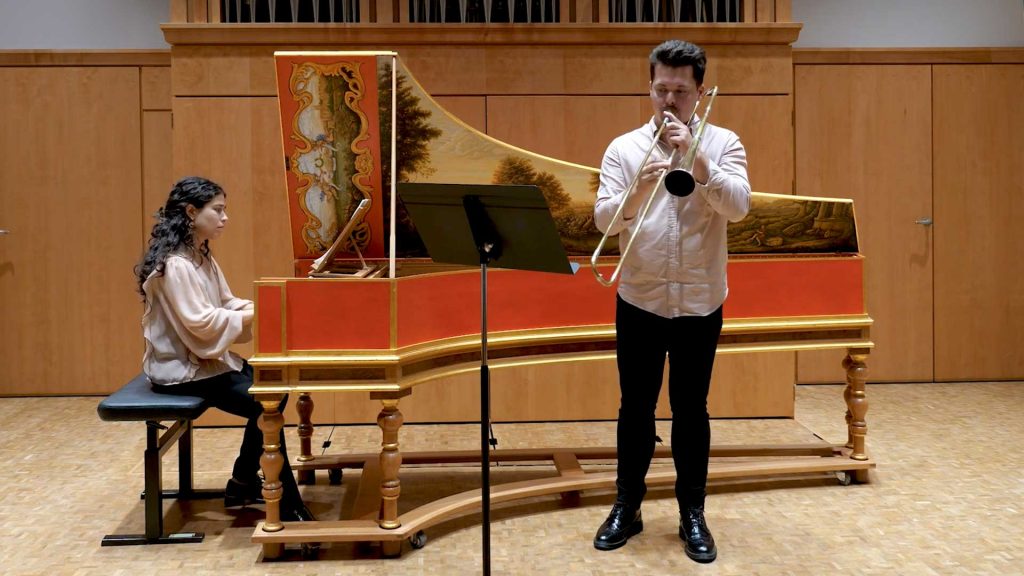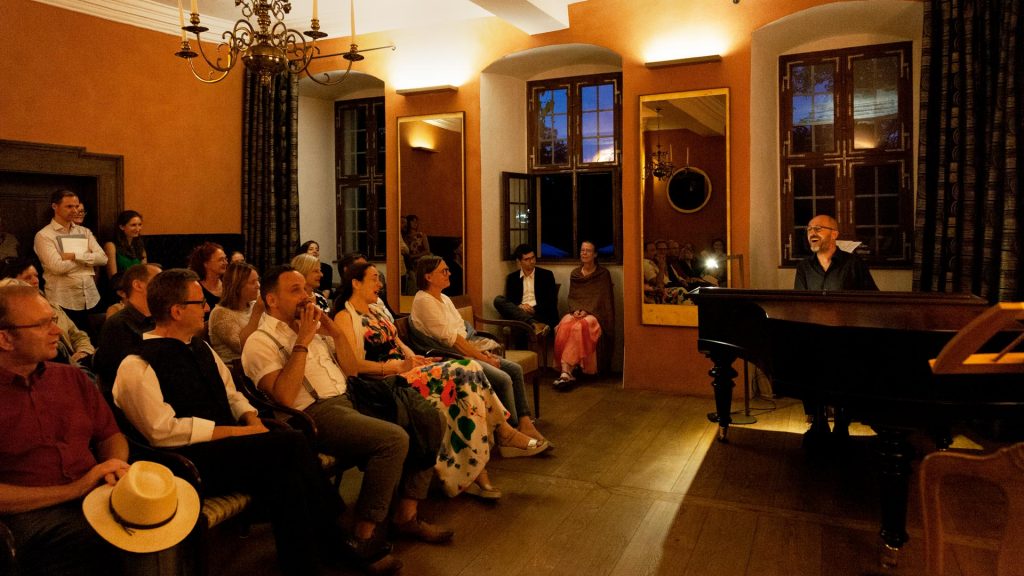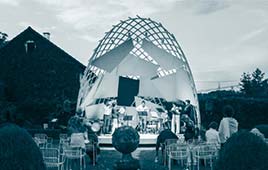
Virtuoso Baroque Music for Trombone and Harpsichord
Duo ›Con Dispositione e Gratia‹
Henry Van Engen, trombone · Rafaela Salgado, harpsichord and organ moreIn the introduction to his impressive treatise on ornamentation, the »Regole, passaggi di musica« of 1594, Giovanni Battista Bovicelli formulated rules for Early Baroque ornamentation techniques. One of the most-quoted statements was that, if you have a good »dispositione«, you will be able to perform even complex and difficult »passagi«. Passagi or passages are those virtuoso ornamentations which in the early 17th century were a challenge, but certainly also a kind of competition for musicians and singers which gave a very special quality to each performance. In this concert, the musicians’ mastery and good disposition will be demonstrated with an unusual combination of instruments: trombone and harpsichord. A real discovery! In addition, young Spanish harpsichordist, Rafaela Salgado, will play on various original instruments from the collection of Schloss Weißenbrunn Foundation, including the 16th century virignal and a 1699 harpsichord. A feast for the ears and eyes.
Fine food and drink after the concert We will also celebrate the ornamentation topic in culinary terms. With exciting results. more
Meanwhile the get-together after the concert has become a cherished tradition at Schloss Weißenbrunn. It is always lovely to have a bite to eat and a drink and to chat about what you have listened to … and about all manner of things.
Les Harlequins
French Baroque Music
Gabriel Belkheiri, tenor · Jérémy Nastasi, guitar and theorbo more»Airs de Cour«, songs accompanied by lute, were extremely popular in 17th century France. It was particulary during the reign of Louis XIII that these songs were often performed at court to entertain company. The concert programme »Les Harlequins« will present characters from the Commedia dell’arte such as the melancholic, the dreamer, the lover or the happy man. The songs themselves deal with a range of affects of amorous passion with a definite preference for naturalistic allusions, offering a wide musical field for lavish vocal and instrumental ornamentation. French court life at Schloss Weißenbrunn. Voilà!
Fine food and drink after the concert French savoir vivre at Schloss Weißenbrunn, also in your glasses and on your plates. Bon appétit! more
Meanwhile the get-together after the concert has become a cherished tradition at Schloss Weißenbrunn. It is always lovely to have a bite to eat and a drink and to chat about what you have listened to … and about all manner of things.

Swinging Christmas
Songs by Frank Sinatra, Bing Crosby and Louis Armstrong
Markus Simon and friends moreThis year’s Christmas concert at Schloss Weißenbrunn will be a cheerful, swinging affair. Markus Simon is at home in many styles and always manages to thrill his audiences with his singing and piano playing. A marvellous musician.
Fine food and drink after the concert We will match this swinging and cheerful concert with our culinary delights: uncomplicated, cheerful and tasty. Come and celebrate with us. more
Meanwhile the get-together after the concert has become a cherished tradition at Schloss Weißenbrunn. It is always lovely to have a bite to eat and a drink and to chat about what you have listened to … and about all manner of things.
